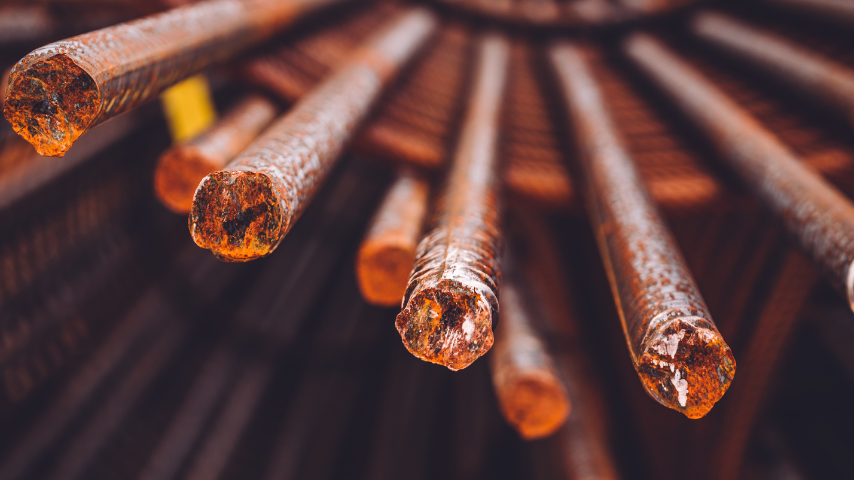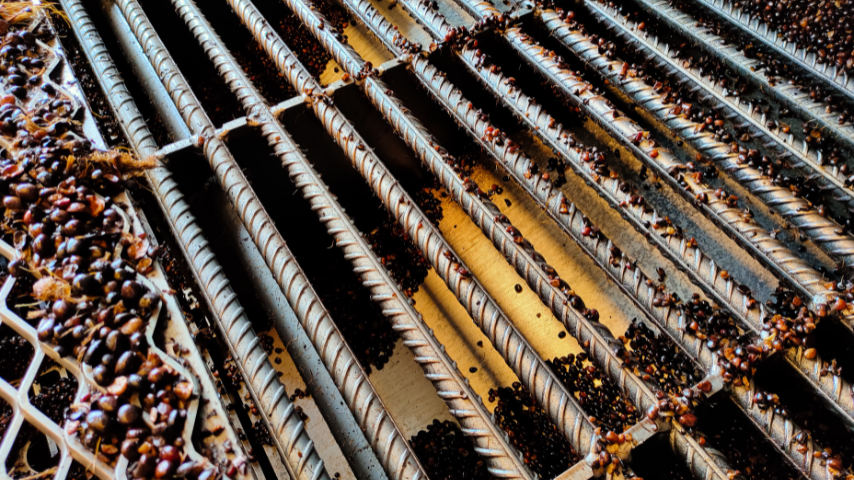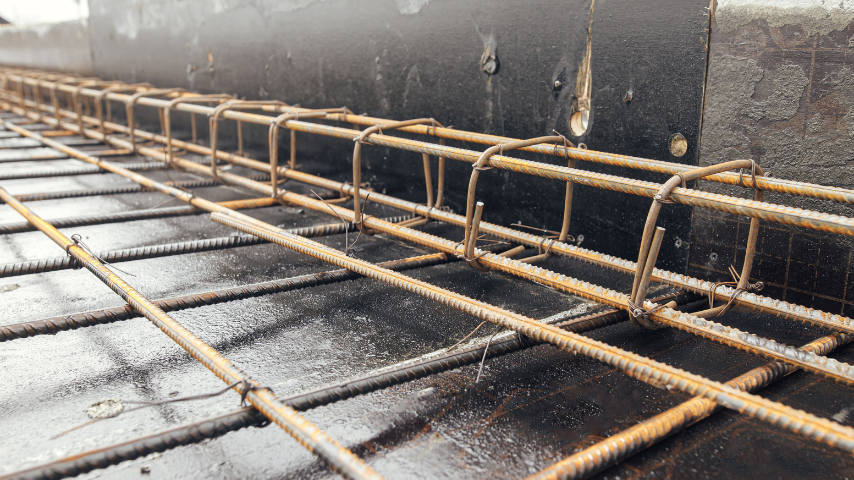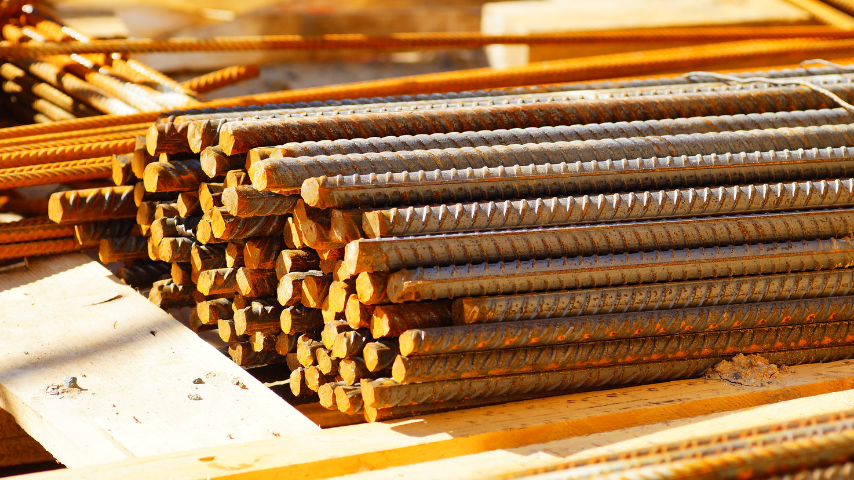Understanding the Cost of TMT Bars
TMT bars full form Thermo-Mechanically Treated steel bars, a type of reinforcement steel extensively used in the construction industry. Combining the best properties of both hot-rolled and cold-rolled steel, TMT bars are highly suitable for reinforcing concrete structures. Their superior strength, ductility, and corrosion resistance make them the preferred choice for modern construction projects. In this blog, we will explore what TMT bars are, their manufacturing process, key features and benefits, applications, types, and the factors influencing their cost.
1. What Are TMT Bars?
TMT bars are high-strength deformed bars used for reinforced concrete (RC) structures. They undergo a specialized manufacturing process called thermo-mechanical treatment, which imparts superior strength, ductility, and flexibility compared to traditional steel reinforcement bars. This process ensures that TMT bars can withstand heavy loads and stresses, making them essential for building safe and durable structures.

TMT Bars Full Form:
-
TMT: Thermo-Mechanically Treated
-
Bars: Steel reinforcement bars used in concrete structures
2. Manufacturing Process of TMT Bars
The production of TMT bars involves several key stages that ensure their superior quality and performance:

1.Casting: Molten steel is poured into molds to shape billets.
2. Hot Rolling: The billets are heated and passed through rollers to achieve the desired shape and size.
3.Thermo-Mechanical Treatment (TMT):
-
Quenching: The bars are rapidly cooled (quenched) in a water bath, hardening the outer surface.
-
Self-Tempering: The core of the bar remains hot during quenching, allowing it to temper the outer layer. This results in a tough and ductile core with a hard exterior.
4.Cold Drawing: The bars are further processed to achieve the required strength and surface finish.
5.Finishing: The bars are cut, bundled, and coated to prevent corrosion.
3. Key Features and Benefits of TMT Bars
1. High Strength
TMT bars are known for their high tensile strength, making them perfect for handling heavy loads and stresses in concrete structures.
2. Ductility
Despite their high strength, TMT bars exhibit excellent ductility, allowing them to deform under stress without breaking. This property is crucial during seismic activities, providing structures with the ability to absorb and dissipate energy.
3. Corrosion Resistance
The thermo-mechanical treatment process enhances the corrosion resistance of TMT bars, extending the lifespan of reinforced concrete structures, especially in environments exposed to moisture and chemicals.
4. Weldability and Bendability
TMT bars can be easily welded and bent without compromising their structural integrity, facilitating versatile construction practices.
5. Economy
Due to their high strength, fewer TMT bars are required compared to traditional reinforcement bars, reducing the overall cost of materials and labor.
6. Earthquake Resistance
The synergy of strength and ductility makes TMT bars especially suitable for constructing earthquake-resistant buildings.
4. Applications of TMT Bars
TMT bars are adaptable and find application, including:
-
Residential Buildings: Prioritizing the safety and longevity of homes.
-
Commercial Structures: Providing robust reinforcement for offices, malls, and other commercial establishments.
-
Infrastructure Projects: Essential for bridges, highways, dams, and other large-scale infrastructure projects.
-
Industrial Buildings: Reinforcing factories, warehouses, and other industrial facilities.

5. Types of TMT Bars
TMT bars are categorized based on their strength and ductility. Common grades include:
Fe 415: Suitable for low-rise buildings and residential constructions.
Fe 500: Ideal for high-rise buildings, industrial structures, and projects requiring higher strength.
Fe 550 and Fe 600: Used in specialized applications where maximum strength and durability are required.
6. Average Cost of TMT Bars
The cost of TMT bars fluctuates based on market conditions, location, and the specific grade of the steel. As of 2024, here’s a general price range for different grades of TMT bars:
Fe 415 Grade TMT Bars:
-
Price Range: ₹40 – ₹45 per kilogram
-
Use Case: Suitable for low-rise residential buildings and non-load-bearing structures.
Fe 500 Grade TMT Bars:
-
Price Range: ₹45 – ₹55 per kilogram
-
Use Case: Ideal for high-rise buildings, commercial structures, and areas requiring higher strength.
Fe 550 and Fe 600 Grade TMT Bars:
-
Price Range: ₹55 – ₹70+ per kilogram
-
Use Case: Used in specialized applications where maximum strength and durability are essential, such as infrastructure projects like bridges and highways.
Note: Prices are indicative and can vary based on regional differences and time. It’s always best to check with local suppliers for the most accurate and up-to-date pricing.
7. Factors Influencing the Cost of TMT Bars
a. Grade of TMT Bars
Higher Grades: Fe 550 and Fe 600 grades offer greater strength and durability but come at a higher cost compared to lower grades like Fe 415 and Fe 500.
Application Needs: Selecting the appropriate grade based on the structural requirements can optimize both performance and cost.

b. Size and Diameter
TMT Bars Length and Weight:
-
-
Length: TMT bars are commonly available in lengths ranging from 12 meters to 18 meters, with the standard length being 12 meters. Longer lengths can be procured based on project requirements.
-
Weight: TMT bars weight varies with its each diameter. Common diameters include 10mm, 12mm, 20mm, and 25mm. For instance, a 12mm TMT bar weighs approximately 888 kg per meter, while a 16mm TMT bar weighs around 1.578 kg per meter.
-
Diameter Matters: Larger diameter TMT bars require more material and, consequently, cost more than smaller diameters. Project Requirements: Assessing the structural needs can help in selecting the right diameter without overspending.
c. Manufacturer and Brand
Competitive Pricing: Evaluate prices from various suppliers to secure the best value while maintaining high quality.
Quality Assurance: Investing in reputable brands ensures reliability and longevity, potentially saving costs on future repairs or replacements.
d. Market Demand and Supply
Economic Factors: Construction booms can drive up demand, leading to higher prices.
Raw Material Costs: Fluctuations in steel prices, influenced by global markets and availability, directly impact TMT bar costs.
Industry Insights: For a deeper understanding of the iron and steel sector in India, explore the Iron and Steel Industry in India.
e. Regional Variations
Location-Based Pricing: Transportation costs and regional taxes can cause price variations across different areas.
Local Supply Chains: Proximity to manufacturing plants can reduce costs due to lower transportation expenses.
f. Additional Features
Coatings and Treatments: TMT bars with special coatings for enhanced corrosion resistance or other properties may cost more.
Customization: Customized lengths or specific packaging requirements can also influence the overall price.
8. Cost Comparison: TMT Bars vs. Traditional Reinforcement Bars
When budgeting for construction, it’s essential to compare TMT bars with traditional reinforcement bars to understand the cost-benefit ratio.
Traditional Bars:
-
-
Cost: Generally cheaper per kilogram compared to TMT bars.
-
Performance: Lower strength and ductility, making them less suitable for high-stress applications.
-
Longevity: More prone to corrosion and requires more maintenance over time.
-
TMT Bars:
-
-
Cost: Higher upfront cost but offers superior performance and durability.
-
Performance: Higher tensile strength, better ductility, and enhanced corrosion resistance.
-
Longevity: Longer lifespan with minimal maintenance, leading to cost savings in the long run.
-

While TMT bars may have a higher initial cost, their superior properties often make them a more economical choice over the building’s lifecycle.
9. Tips to Manage and Optimize TMT Bar Costs
To ensure you get the best value for your investment in TMT bars, consider the following strategies:
a. Plan and Budget Accurately
-
Assess Project Needs: Determine the required grade and diameter based on structural requirements to avoid over-purchasing.
-
Budget Allocation: Allocate funds appropriately, prioritizing quality where it matters most.
b. Source from Reputable Suppliers
-
Quality Assurance: Ensure that suppliers provide certified and high-quality TMT bars.
-
Competitive Pricing: Check rates from several providers to obtain the greatest discounts without sacrificing quality.
c. Bulk Purchasing
-
Discounts and Deals: Buying in bulk can often lead to discounts, reducing the overall cost per kilogram.
-
Storage Considerations: Ensure you have adequate storage facilities to prevent damage or deterioration of the bars
d. Monitor Market Trends
-
Stay Informed: Keep an eye on steel market trends and raw material costs to anticipate price changes.
-
Flexible Procurement: Be flexible with purchase timings to take advantage of lower prices during market dips.
e. Optimize Design
-
Efficient Use of Material: Work with structural engineers to design structures that use materials efficiently, minimizing waste.
-
Alternative Solutions: Explore alternative construction methods or materials that can complement or reduce the need for extensive TMT reinforcement.
10. Where to Buy TMT Bars
Choosing the right supplier is crucial for both cost and quality. Here are some options:

a. Local Steel Suppliers
-
Advantages: Lower transportation costs and easier access for quality checks.
-
Considerations: Ensure they are reputable and provide certified TMT bars.
b. Online Marketplaces
-
Advantages: Convenience and the ability to compare prices from different suppliers.
-
Considerations: Verify the authenticity and quality certifications of the bars before purchasing.
c. Direct from Manufacturers
-
Advantages: Potential for better pricing and customization options.
-
Considerations: May require larger order quantities and longer lead times.
11. Future Trends Affecting TMT Bar Costs
Understanding future trends can help in planning and budgeting:
a. Technological Advancements
-
Improved Manufacturing: Advances in manufacturing processes can lead to more efficient production, potentially lowering costs.
-
Sustainability Practices: Increased focus on sustainable production may influence pricing based on eco-friendly practices.
b. Regulatory Changes
-
Standards and Compliance: Stricter building codes and quality standards can impact production costs and, consequently, the price of TMT bars.
-
Trade Policies: Import/export regulations and tariffs can affect the availability and cost of raw materials.
c. Economic Factors
-
Inflation: General economic inflation can lead to increased costs for materials and production.
-
Global Market Dynamics: International steel prices and global demand can influence local TMT bar costs.
Conclusion
Noah Infrastructures is recognized as the best construction company in Chennai, committed to excellence in every project we undertake. We utilize only the best TMT bars available in the market to ensure that all our constructions are robust, durable, and built to last. By choosing Noah Infrastructures, you are partnering with a team that prioritizes quality and safety, leveraging top-tier materials to deliver outstanding results. Whether you’re embarking on a residential project, a commercial complex, or large-scale infrastructure, our expertise and premium TMT bars ensure your construction stands the test of time.
Contact Noah Infrastructures, best civil contractors in chennai today for professional advice, expert solutions, and high-quality construction materials tailored to your project’s needs.

